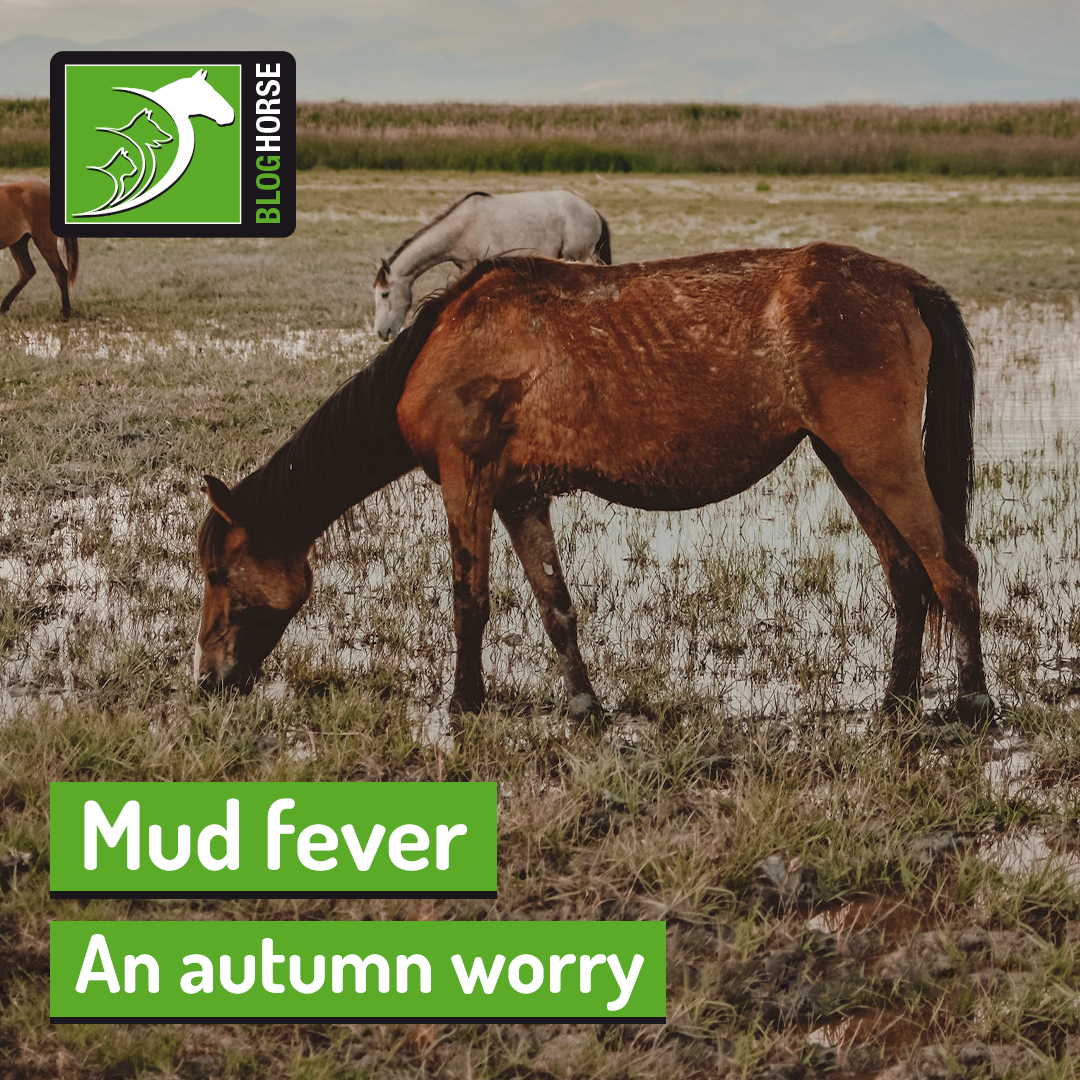
Mud fever - an autumn worry

Mud fever can be a challenging problem for horse owners during the wetter months of autumn and winter, requiring careful management of both the horses affected as well as their paddocks and fields.
This illness is caused by a bacterial infection affecting the lower portion of the leg due to muddy and wet conditions. During the relentlessly rainy days of the season, horses might find themselves spending a lot of time in waterlogged, muddy fields. The moisture, combined with the abrasive properties of the mud, can create a pathway for bacteria to invade the tissues in the pastern or fetlock.
How do I know if my horse has mud fever?
If you spot any of these, it's a sure sign something is wrong:
- Red and hot skin;
- Itching and discomfort affecting the horse's legs;
- Scabs in the skin of the pastern or fetlock;
- Yellow or white discharge around the scabs;
- If severe enough, swelling and limping;
Give your vet a call without delay! The sooner your horse has a proper diagnosis, the easier it will be to resolve this issue and avoid harsher problems.
What do I have to keep an eye out for?
Inspecting your animal's hooves frequently is the best way to detect problems early, and prevention is much easier than treatment. If the weather is rainy and there have been long periods of muddy paddocks, it is vital to check on them daily.
Some horses, such as animals with chronic diseases, wounds in the legs, or thinner skin, are more susceptible to developing mud fever, so they require an extra careful inspection to avoid complications.
Is it possible to treat it?
Treatment is possible, and your vet will work with you to ensure you have a tailored plan for your animals and your premises.
The goal is not just to clear the infection and get your horses back to form but also to prevent mud fever from happening again. This is why your vet is likely to suggest changes in how your fields are organised and where your horses spend their time, as this will play a large part in helping to prevent this disease.
Would you like to know more about horses? Check our Equine Courses:
Equine courses
Published: 20 Oct 2021
Read the previous article: Food toys for dogs

